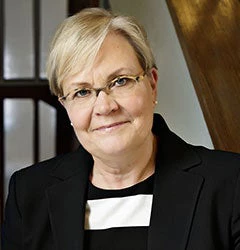The Association of African Universities—AAU for short—held its 13th general conference last week in Libreville, Gabon. Representing the World Bank at this conference, I had a great opportunity to engage with this vibrant university community. A community which is expanding fast as demand for higher education is skyrocketing thanks to Africa’s “youth bulge”, that is, as the share of young people in the population is increasing in many countries. Private universities are mushrooming everywhere.
While university enrollment is growing very fast in Africa, there is also some catching up to do as only 7 percent of the relevant age group is in university today, while the world average is 30 percent. Scholarships aside, the World Bank is the single largest external supporter of higher education in Africa. So, we share a very strong common interest with the AAU, especially to help ramp up the contribution of universities to development, jobs and poverty reduction.
The AAU was founded almost 50 years ago as the apex organization and forum for consultation, exchange of information and co-operation among institutions of higher education in Africa. It represents African higher education in regional and international bodies and supports networking in teaching, research, information exchange and dissemination. Its general conference, held every four years, has attracted hundreds of vice-chancellors, rectors and professors from over 100 universities, both public and private. Its headquarters is in Accra, Ghana. In fact, the Ghanaian Minister of Education participated actively, including chairing the plenary where Makhtar Diop, World Bank Vice President for Africa spoke via video and I followed in person.
Makhtar spoke passionately about the need to scale up science and technology. Only 10 to 20 percent of today’s university students are studying the natural sciences and engineering. I highlighted our keen interest to support African universities in their efforts to improve relevance to the economy and jobs, set higher standards, revitalize institutional governance, enable private institutions to expand, and increase investment in higher education, including by those families that can afford to pay tuition. I also noted that public funding for higher education should be targeted to where it produces the clearest development results for a country.
I must also report that there was much interest at the conference in our proposed Africa Centers of Excellence project, which, if approved, will award grants on a competitive basis to about 15 regional centers of excellence. A call for proposals will be issued in the coming months. Many participants commended the World Bank about a ‘paradigm shift’ in its support of higher education. I am very excited about this. Yes, we are in!
As I left Gabon after the conference, I reflected a bit about the country I had just visited, albeit for a big regional event. Gabon is an oil-rich middle income country that boasts a per capita income of close to $10,000. Yet many human development indicators, such as learning outcomes or maternal mortality, are worse than in most countries with similar income. There is tremendous scope for graduates in various disciplines to make a contribution to development. But to get there, Gabon, like many other African countries, will need to pay attention not only to higher education, but also to issues across the whole spectrum of human development that affect a country’s ability to produce more graduates—starting with children’s access to good nutrition and preschool programs as well as high-quality basic education that results in good basic language and math skills for students. Families also need protection from financial and other crises that may affect their incomes suddenly, affecting their ability to keep children in school.


Join the Conversation